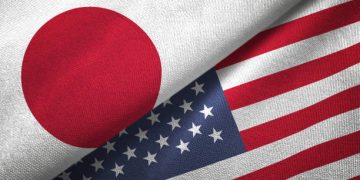The United States has officially implemented a new tariff structure with Japan following the trade agreement announced on July 22, 2025. The deal places tariffs and duties at the forefront of bilateral economic relations, creating a standardized framework that directly affects import costs, supply chains, and market access between the two countries.
Establishing a 15% Tariff Baseline
At the heart of the agreement is a 15% baseline tariff applied to nearly all Japanese imports entering the US market. This means:
- Products that previously carried tariffs below 15% will now be adjusted upward to meet the new standard.
- Goods already subject to tariffs of 15% or higher will remain unchanged.
By harmonizing tariff levels, the US aims to bring predictability and balance to trade while reducing disparities across different product categories.
Exemptions and Strategic Zero Tariffs
While most Japanese imports are now tied to the 15% duty benchmark, the agreement outlines important exemptions to safeguard domestic needs and global supply chains. Goods exempted from tariffs include:
- Natural resources not produced in sufficient quantities within the US.
- Generic pharmaceuticals and related inputs critical for healthcare and drug manufacturing.
These exemptions ensure that tariffs do not disrupt essential supply chains, while still maintaining a consistent duty structure for non-essential imports.
Sector-Specific Tariff Adjustments
Automobiles and Auto Parts
Japanese automobiles and parts—one of the largest categories of imports—are now aligned with the 15% baseline. While vehicles and components that were previously taxed below this level will see an increase, those already taxed at higher rates remain unchanged. This standardization is expected to have a significant impact on automakers such as Toyota, Honda, and Nissan, which rely heavily on the US as a core export market.
Aerospace
In aerospace, the agreement removes tariffs previously applied under earlier executive actions for most civil aircraft. The only exception is unmanned aircraft, which remain under tariff obligations. This adjustment reflects the strategic importance of aviation trade and its role in bilateral industrial cooperation.
Industrial Goods
Other categories, including pharmaceuticals and select industrial goods, are also covered under the 15% structure. By doing so, the US government seeks to ensure fair competition while encouraging broader market participation.
Tariffs as a Tool for Market Access
In exchange for the tariff realignment, Japan has pledged to expand imports of US products, effectively linking tariff concessions with reciprocal trade commitments. Key measures include:
- Increasing imports of US-grown rice by 75% under Japan’s Minimum Access scheme.
- Committing to purchase $8 billion annually in American agricultural and industrial products such as corn, soybeans, fertilisers, and bioethanol.
- Accepting US-manufactured passenger vehicles certified under US standards without the need for additional testing or modifications.
- Expanding procurement of US-made commercial aircraft and defense equipment, strengthening industrial cooperation between the two nations.
These commitments highlight how tariffs and duties are being used not only to regulate imports but also to unlock reciprocal access for US producers in Japan.
Oversight and Implementation of Tariff Adjustments
The Department of Commerce, in coordination with the Office of the US Trade Representative (USTR), US Customs and Border Protection (CBP), and the International Trade Commission (ITC), will oversee the technical implementation of the tariff schedule.
A key detail is that the new tariffs apply retroactively to imports arriving after August 7, 2025. Importers who paid duties under the old rates will be eligible for refunds, in line with customs procedures. This retroactive clause is designed to ensure a seamless transition and avoid uneven treatment of shipments made during the negotiation window.
Strategic Importance of Tariffs and Duties
The United States government views the new tariff framework as a cornerstone of its strategy to balance trade with Japan. By setting a clear and uniform duty rate, the US reinforces the role of tariffs and duties as essential instruments of trade policy.
From an economic perspective, the standardized tariff rate is expected to:
- Provide predictability for importers and exporters.
- Reduce arbitrage opportunities across product categories.
- Encourage reciprocal trade flows by tying tariff concessions to Japanese market access for US goods.
- Enhance supply chain stability by maintaining zero-tariff exemptions on critical goods.
Implications for Businesses and Supply Chains
For businesses, the changes carry both opportunities and challenges. Japanese automakers and industrial exporters will face adjusted cost structures when selling into the US market, while American farmers and manufacturers stand to benefit from expanded Japanese purchases.
Supply chains in sectors like automobiles, aerospace, agriculture, and pharmaceuticals are likely to see shifts as both countries adapt to the new tariff environment. Importers and distributors will need to reassess pricing strategies, compliance procedures, and long-term procurement plans.
Conclusion: Tariffs as the Centerpiece of Bilateral Trade
The implementation of the US–Japan agreement underscores the central role that tariffs and duties play in shaping modern trade policy. By establishing a standardized 15% tariff framework, while carving out exemptions for critical goods, the United States has leveraged tariffs as both a regulatory tool and a negotiating instrument to secure broader economic commitments from Japan.
While challenges remain in ensuring compliance and monitoring reciprocal obligations, the deal represents a significant step toward balancing trade and fostering more predictable supply chain environments for industries on both sides of the Pacific.
#SupplyChainNews #GlobalTrade #Tariffs #Duties #TradeUpdate

















